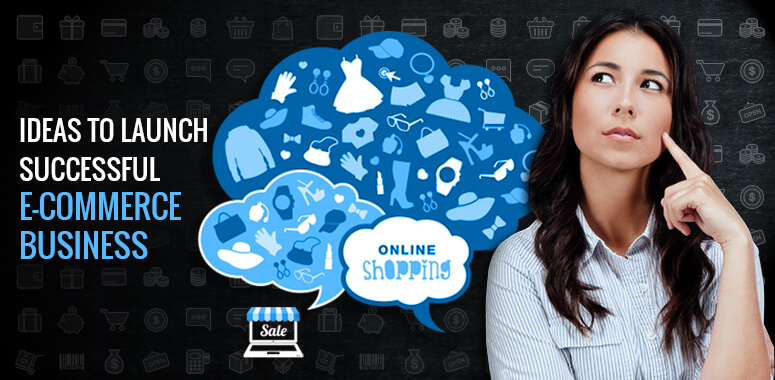‘Profit’ has become a buzz word now. Businesses worldwide are experimenting and perspiring to make more and more profit. Present trends point towards the unavoidability of web for a successful business.
Ecommerce is the right way to do business; in fact it is the best way. The gross sales that popular ecommerce websites earn per year astoundingly goes beyond millions and trillions. These tempting figures are inspiring for anyone looking to reap maximum profits. But the pitfall of this is that people jump into ecommerce business without any plan on how to make a better store- their only focus remains on profit. They daydream profit alone and such unplanned attempts fail miserably resulting in huge financial losses. These people conclude that ecommerce is something deceiving and not worthy of the investments made. They yell out the same to everyone. Such mishaps gravely affect small and medium level businesses.
Without planning, nothing can be achieved and this fact applies in case of ecommerce as well. Plan properly and execute professionally. Keep doing things in a proper manner and results will follow you.
Before staring the ecommerce business, pause a while. THINK!
Phase 1
 Dividing the action plan into different phases and setting intermediately objectives is crucial. Ecommerce is something really huge and trying everything spontaneously would lead only to losses. Self-analysis is the first phase in which you have certain questions to yourself.
Dividing the action plan into different phases and setting intermediately objectives is crucial. Ecommerce is something really huge and trying everything spontaneously would lead only to losses. Self-analysis is the first phase in which you have certain questions to yourself.
- What type of products am I going to add into my ecommerce store?
- How much money should I spend to build an online store? Think of the investment you would have made for setting up a physical shop. If not more than that, at least make the same investment. Why? Because your scope of growth is more and so is the comfort you enjoy. But still, try to find ways for minimising the investment.
- Do you need an app now? No! And if you are tight on budgets, we would say a BIG NO. First, see how things are progressing. How many customers are reaching your website and how long are they staying. Analyse customer behaviour and once you find an app inevitable, then only go for it. When you are just lying bricks online, stay repulsive to additional investments.
- How many staffs do I need to manage my online store?
- Which Shopping cart is suitable for my products?
- After shopping cart is chosen, how should my category list in the store?
A qualified designer can help you with better design for attracting customers and he may be highly specialized in ensuring easy navigation. But you can provide your ideas and discuss about the same with the professional before design confirmation.
With Phase 1, your online store development would be done.
Phase 2
In second phase, underlying are the activities to be performed.
- Unique Way Product data Management
- Product market analysis in ecommerce
- Product inventory management
- Regular updating of database
- Communicating with Outsourcing managers & Team Leaders
 From this step, you can appoint a Project Manager for your online store. You can hire ecommerce expert staffs in your office and rely on an outsourcing company for product data entry and back office support for your online store project. These staffs can be used for your order & inventory management, email support, product support etc Therefore using limited strength i.e. one project manager and two hired ecommerce product data entry team members, you can save enough money and at the same time you can make your online store more professional for your customers.
From this step, you can appoint a Project Manager for your online store. You can hire ecommerce expert staffs in your office and rely on an outsourcing company for product data entry and back office support for your online store project. These staffs can be used for your order & inventory management, email support, product support etc Therefore using limited strength i.e. one project manager and two hired ecommerce product data entry team members, you can save enough money and at the same time you can make your online store more professional for your customers.
Within the first six months of the second phase, you will get an exact idea about
- Friendliness of your store
- How much customers do your online store has
- SEO is supportive or not
- How much attractive your online store is for customers
Phase 3
This is to be initiated once the store is live, full-fledged and running. It’s like accelerating to pace up your business to the next gear of your ecommerce vehicle. Again this phase is a self-analysis and questioning phase.
- Should I hire SEO and marketing team?
- What are the marketplaces helpful for my business?
- Without losing much time and money, how it would be helpful to access backend of the store?
- How much money should I spend for advertisements, ads, Google Adwords etc.?
- What are the tools that I can use to identify the performance of my store?
From inception itself, you must have a focus towards the ultimate goal
Ecommerce involves a lot of varied tasks and therefore the project has to be broken down into different easily workable modules. Thus multiple teams get involved. Even when each module is perfectly executed, connecting them in proper order and direction through timely interactions may be quite challenging. The final goal consequently turns out to be unclear. Proper focus must be retained from beginning to end and for the same, a skilled outsourcing project manager should be hired to lead your project.
Develop a culture of shared responsibility and stop shifting blames
From the planning to meticulous execution and from rejoicing victories to putting blame, everything should be a team game. Blames are negative motivators. Keep on inspiring each other, reinvent strategies and evolve over time. Develop a dogma of shared responsibility where everyone involved in the project shares equally responsibility and credits of success and guilt of failures are equally distributed. This will make sure of collective responsibility and you will see a team of members mutually complementing each other.
Make proper management rules for your projects
- Communicateproperly, periodically and regularly. Without prolific interactions, nothing happens and no preventive, curative or progressive plans can be adopted.
- Hiring ecommerce product listing team from a reputed outsourcing company keep you comfortable. You can strictly demand the outsourcing team to submit files before any specific time in such a way that the file reaches you before your office opening time. This helps your manager to check files easily and proceed with instructing teams and taking things ahead from there.
- Each update should be obtained via mail. However, other resources can also be used for leading the team like Skype, smartsheets or Trello etc.
Having grasped the step by step progressions in ecommerce business, you now have a clear route map for you ecommerce journey. Whomever you choose as your co-traveller to assist and guide you, think twice before making extra investments. Start slowly with well-defined plans and keep on tweaking your strategies based on the inclinations and developments. By keeping all these detailed things in mind, your ecommerce business will never fail.


